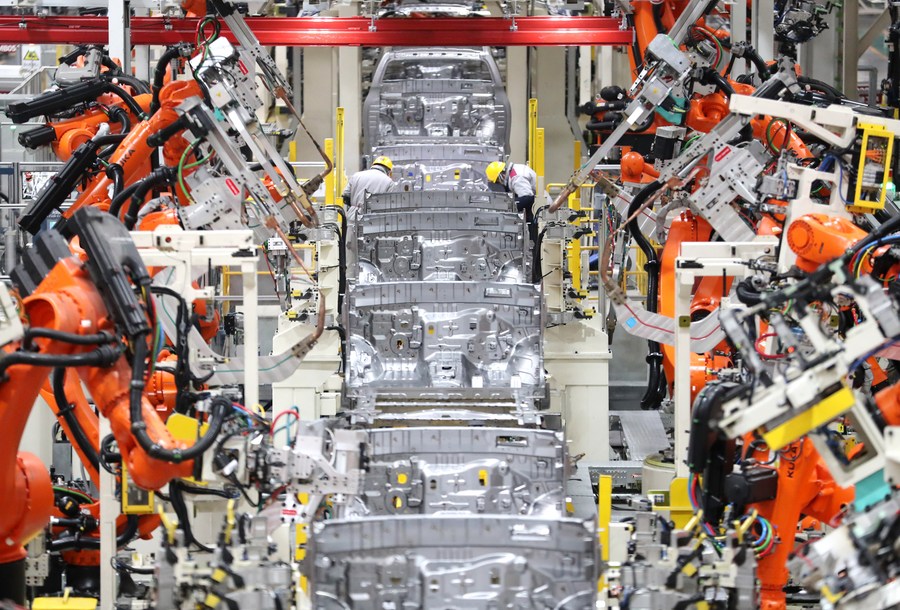
Despite the severe trade fares imposed by US President Donald Trump, with the aim of economically weakening China, many American companies continue to maintain their presence in the Asian country.
The movement, which was initially seen as an attempt to force the reindustrialization of the US, has generated the opposite effect, with many companies opting to reinforce its base of operations in China, rather than diversifying to other countries.
According to a report from The New York Times, cited by Folha de S. Paulo, Trump’s strategy aims to increase rates on Chinese products, exceeding 100%in retaliation of Beijing commercial practices.
The Trump administration seeks to repeat the strategy of its first term by pressing the US industry to return to the US. However, the measure was expanded to include Asian countries such as Vietnam, Thailand and India, which were previously considered alternatives to the global production chain.
The result, however, has been different from expected by the White House. Entrepreneurs and experts point out that the predictability of Chinese suppliers, combined with the logistics complexity of restructuring productive chains, has led companies to maintain their operations in China rather than transferring them to other places.
China as a rational choice
Travis Luther, founder of Moso Pillow, a company specializing in bamboo fiber bed products, commented that the most rational decision has been to continue with Chinese suppliers. During a recent conference with other US entrepreneurs, Luther reported that most companies are not looking for alternatives outside China.
“Staying in China and making China work is everyone’s strategy now,” said Luther, noting that, besides cost, China offers highly sophisticated manufacturing and engineering processes.
The installation of a US processing plant, according to Luther, would require significant investments-about $ 6 million ($ 35 million)-and take years to materialize, and it is necessary to import the raw material during this period, subject to the rates in force.
Political uncertainty as an obstacle
Trump’s voimp’s voump decisions has created an environment of uncertainty, making it difficult for long -term investments. Kit Conklin, the Global Chief of Risk and Compliance with Requirement, a company specializing in supply chain mapping, compared the current scenario to a “fog of the trade war”, where the lack of predictability of policies prevents the industry from reacting properly. “There has to be political certainty for the industry to react,” said Conklin.
Frustration is shared by other executives, such as one of a multinational, who spoke under anonymity. He expressed his dissatisfaction with the unpredictability of commercial rules: “The rules of the game seem to change every day. It seems that we have no choice but to wait.”
During the previous trade war, many companies transferred part of Chinese production to neighboring countries or to Mexico, trying to avoid tariffs. However, with the new round of tariffs, which affects more than 60 countries, including Vietnam, Thailand and India, the incentive for factories relocation has been virtually annihilated.
The maintenance of supply chains
A note from the Japanese Bank Nomura Securities notes that although tariffs on China remain high, comprehensive tariffs imposed on other countries can, paradoxically, preserve China’s position in global supply chains. According to the bank, the temporary standardization of tariffs in 10%, valid for 90 days, can help maintain the status quo.
Sarah Massie, a consultant specializing in international trade, explained that the current scenario, where all countries are being affected by tariffs, tends to favor the maintenance of existing business partnerships.
“If everyone is being hit, then this is definitely stopping some of the search. Because people think that at least we already know what this supplier gives us and we were happy with them before the tariffs reach, so why wouldn’t we remain happy?” Said Massie. However, she warned that not all companies will be able to maintain these costs in the long run.
The impact on the American industry
Despite Trump’s efforts to recover national industry, experts point out that the US faces significant obstacles to compete with China’s productive capacity.
Even under tariff pressure, China remains a vital center for global production due to its infrastructure and efficiency in product manufacturing.
In addition, Trump’s lustly political decisions make it even harder for US companies to make long -term decisions compared to their supply chains.
The situation reveals a dilemma for the Trump administration: while political rhetoric continues to defend the reindustrialization of the US, the economic reality and the complexity of global productive chains make it difficult to perform this strategy.
Companies continue to bet on China’s stability and predictability, placing the effectiveness of the US government’s aggressive trade policies.
Source: https://www.ocafezinho.com/2025/04/10/empresas-dos-eua-preferem-se-manter-na-china-mesmo-com-o-tarifaco-de-trump/

